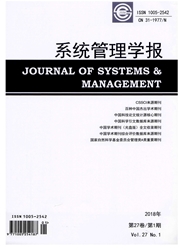

 中文摘要:
中文摘要:
考虑企业级软件使用成本较高的特点和开源软件的威胁,对企业级软件市场上专有软件提供商的竞争策略进行了研究。分析了专有软件与开源软件竞争的市场均衡,发现当开源软件质量较低时,专有软件提供商具备一定的开发效率就能垄断市场;当开源软件质量较高时,专有软件提供商需要提高开发效率以获得市场份额。随着开源软件质量的提高,它需要降低质量、降低价格来获取最优利润。研究了专有软件提供商的最优质量策略,发现当用户使用软件成本较高时,专有软件提供商应采取高质量策略;当使用成本较低时,软件提供商开发效率高则采取高质量策略,效率低则采取低质量策略;当使用成本适中时,若专有软件提供商开发效率低且开源软件质量高,则专有软件提供商应采取低质量策略,否则采取高质量策略。最后,探讨了开源软件对消费者剩余的影响,发现质量较高的开源软件才会增加消费者剩余。
 英文摘要:
英文摘要:
Considering the high cost of enterprise software and the threat of open source software, the competitive strategies of proprietary software vendor in enterprise software market are studied. First, the market equilibria are analyzed and the results show that when open source software has low quality, proprietary software vendor can monopolize the market as long as its development efficiency is above a certain threshold. When open source software has high quality, proprietary software vendor needs to enhance development efficiency to obtain a certain share of market. To obtain the optimal profit, the proprietary software vendor should reduce quality and improves. Second, the quality strategies of proprietary lower price as the quality of open source software software vendor are discussed and the results show that when the cost of using software is high, the vendor must adopt high quality strategy. When the cost is low, if the vendor has high development efficiency, it should adopt high quality strategy- otherwise it should adopt low quality strategy. When the cost is moderate, if the vendor's development efficiency is low and open source software has high quality, the vendor should adopt low quality strategy; otherwise it should adopt high quality strategy. Finally, the discussion of the impact of open source software on consumer surplus indicates that only the high quality open source software can increase consumer surplus.
 同期刊论文项目
同期刊论文项目
 同项目期刊论文
同项目期刊论文
 期刊信息
期刊信息
